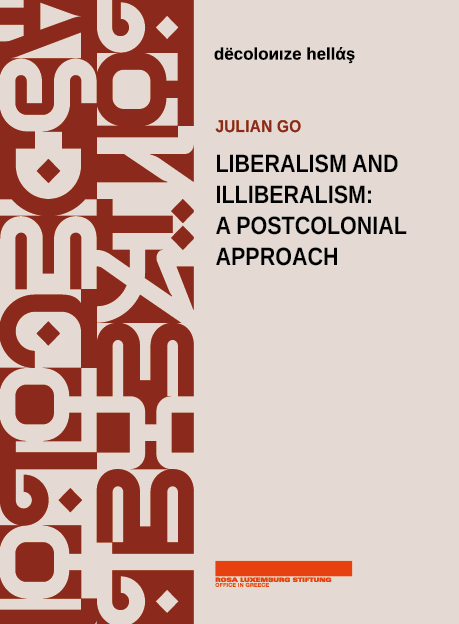DH PUBLICATIONS
The Balkans and Black Marxism: Toward the Abolition of White Supremacy in Europe DUŠAN I. BJELIĆ
Edited and Introduction by Vangelis Calotychos

How can Black Marxism as an expression of the Black Radical Tradition help us critically study today’s Balkans? In his book Black Marxism, Cedric Robinson underscores the importance of feudalism and racialized social conventions for the beginnings of capitalism even while reformulating the significance of the Balkan-Eastern Mediterranean space as the periphery’s first geography of the Third World. Seen from this perspective, the development of capitalism as racialism connects this area, both spatially and historically, with the transatlantic slave trade. The historical connectivity derived from this relation generates new correspondences where the one phenomenon may be analyzed in the terms of the other. Critical Balkan Studies can be withdrawn from a Eurocentric universality and refocused on the historical particularities of racial capitalism. Since slavery defined Europe as the West, the western discursive construction of the Balkans as Other, as imperfect Europeans, as crypto-colonial or abject Europeans, should be viewed as secondary to the primary goal of Balkan Studies: the abolition of Europe as a civilization of racial capitalism.
Liberalism and Illiberalism: Α Postcolonial Approach JULIAN GO
Edited and Introduction by DESPINA LALAKI

This short chapter uses examples from US liberal imperialism to illuminate the postcolonial critique of liberalism and its standpoint. First, it thinks of the postcolonial critique as one that sees the liberal script as a constitutive boundary-drawing project. Liberalism universalizes not in opposition to but through its particularizing moves. Second, this it claims that the postcolonial critique does not emerge from nowhere. It comes from the space of the “colonial”: a sociopolitical site of difference, both material (or “actual”) and conceptual, that liberal projects seek to organize hierarchically and, in so doing, generates the space for critique. To illuminate these points, the essay refers to America’s new empire of the early twentieth century that encompassed Puerto Rico and the Philippines and colonized subjects’ own anticolonial critique of that empire.
A Call to Rasanblaj: Black Feminist Futures & Ethnographic Aesthetics GINA ATHENA ULYSSE
Edited and Introduction by PENELOPE PAPAILIAS

The Haitian-American feminist anthropologist, artist and academic Gina Athena Ulysse engages in rasanblaj: a unique feminist and decolonial practice rooted in black aesthetics and the Haitian spiritual and historical experience. This volume attempts to broaden the access to contemporary black radical thought and art, especially, to Caribbean genealogies. At the core of the volume is the script of the performance Ulysse presented at the Decolonizing Hellas symposium in November 2021, accompanied by a related text on contemporary Haitian art. In an introductory conversation with her, Ulysse reflects on critical questions regarding history and decoloniality, ethnography and art. What does it mean to contest the hegemony of anti-blackness and Eurocentrism in practice? How might dominant historical narratives, but also the very meaning of freedom, transform if we place at the center of our analysis and practice the historical experience, traditions of artistic expression, genealogies of resistance and spirits of Haiti and, more generally, the perspectives opened up by black radical thought?

